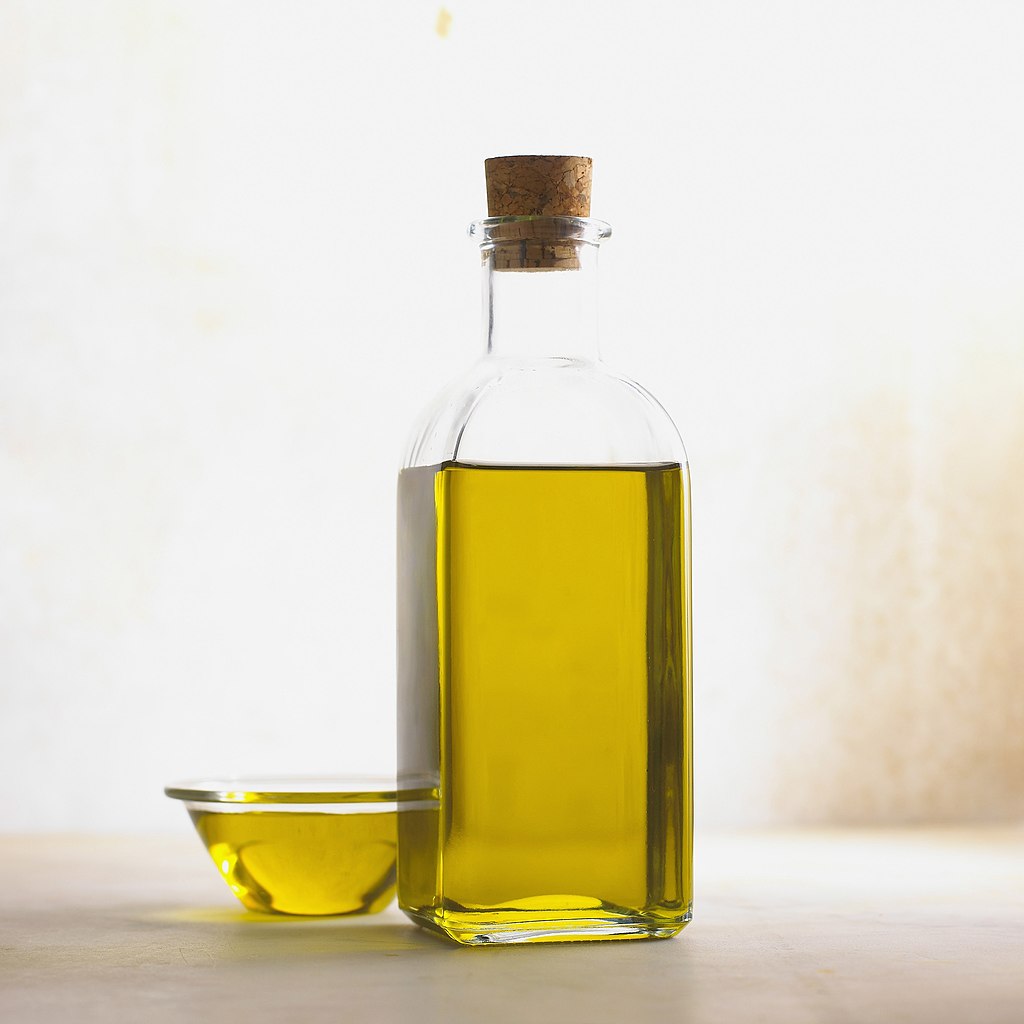
I enjoy the taste of olive oil and use it for cooking. It has been recommended as part of the Mediterranean diet for heart health and as a healthy monounsaturated replacement for other fats in the diet. But should we take it as medicine to promote longevity and reduce the risk of death from other diseases? A news item in Reader’s Digest says we should, that it is beneficial either used in cooking or taken straight from the bottle. It reports a Harvard study that makes olive oil sound like a miracle drug, almost a panacea. But that study only showed correlation, not causation.
The study was published in the Journal of the American College of Cardiology in Jan 2022. It was an observational study based on the self-reported eating habits of over 92,000 participants in the Nurses Health Study and the Health Professionals Follow-up Study. Participants filled out questionnaires every 4 years over a 28-year period, answering questions about their use of olive oil for salad dressing, baking, frying, sauteing, and spreading on bread, and about their use of other vegetable oils, margarine, butter, and dairy fat. The researchers tried to calculate the average amount consumed and looked at the causes of death for those in the highest quartile of olive oil consumption compared to those who rarely or never used olive oil.
The results
36,856 people died during the period studied. Those in the highest quartile of olive oil consumption were 19% less likely to die from all causes. They were 19% less likely to die of cardiovascular disease, 17% less likely to die of cancer, 29% less likely to die of neurodegenerative diseases, and 18% less likely to die of respiratory diseases.
Correlation does not always mean causation. Sometimes it does. For instance, when you are weighing apples, the number registered on the scale is correlated with the number of apples added, which is the direct cause. But it’s easy for correlation to be mistaken for causation when there is no causal link. Children learn as they get older, and they also grow in body size. The size of a child’s vocabulary would be expected to correlate well with their shoe size. A simplistic interpretation might imply that wearing bigger shoes would result in a bigger vocabulary. But that doesn’t mean putting on Daddy’s big shoes would somehow magically enable children to understand the meaning of big words like “Gigantopithecus” or “Pneumonoultramicroscopicsilicovolcanoconiosis.” The real causal relationship involves age and education, not shoe size.
Criticism of the study
Joel Dahms reviewed the study for the Institute for Functional Medicine. He was skeptical of the results for several reasons, including the inaccuracy of self-reporting, the impossibility of controlling for all possible confounders (participants may have had other healthy habits), the likelihood that participants were not representative of the entire population, and the low intake of olive oil compared to other studies. The average intake in this study was 4 grams, less than one teaspoonful, compared to 20-22 grams in the Spanish PREDIMED study. He wondered if another vegetable oil might have shown similar results and wondered whether some component of olive oil like oleic acid or polyphenols might be responsible. Basically, all he can recommend is the standard advice to replace animal fats in the diet with healthier fats.
He did find reason to be hopeful:
Perhaps more surprising was the comparison between the second quartile of the olive oil intake and the lowest quartile (rare/no olive oil intake), which showed a 12% reduction in mortality risk from all causes at the intake level of just 0.5 teaspoon or about 1.5 g/day of olive oil. If this finding is borne out in further studies, that’s an amazing benefit from an astonishingly low level of olive oil consumption. Another promising finding was a 27% reduction in risk of dementia-related mortality for those in the highest versus lowest category of olive oil consumption, which, considering the lack of proven preventatives for Alzheimer’s disease and dementia, could be of great importance from a public health perspective.
Conclusion: food, not medicine
Olive oil is a healthy fat that has a proven place in the kitchen. This new study is intriguing, but the evidence is insufficient to justify re-classifying olive oil as a medicine or taking it every day in order to avoid chronic disease and live longer.

